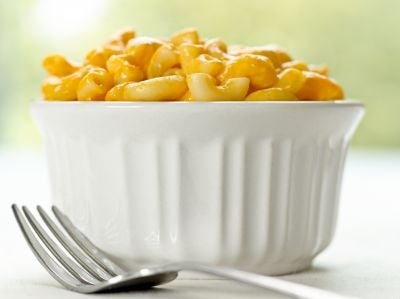Your support helps us to tell the story
From reproductive rights to climate change to Big Tech, The Independent is on the ground when the story is developing. Whether it's investigating the financials of Elon Musk's pro-Trump PAC or producing our latest documentary, 'The A Word', which shines a light on the American women fighting for reproductive rights, we know how important it is to parse out the facts from the messaging.
At such a critical moment in US history, we need reporters on the ground. Your donation allows us to keep sending journalists to speak to both sides of the story.
The Independent is trusted by Americans across the entire political spectrum. And unlike many other quality news outlets, we choose not to lock Americans out of our reporting and analysis with paywalls. We believe quality journalism should be available to everyone, paid for by those who can afford it.
Your support makes all the difference.Variety may be the spice of life, but scientists are now saying it could also be the reason why the US is so fat.
Researchers are increasingly backing a theory that blames the variety and sheer abundance of food choices for the obesity epidemic.
In an editorial to be published in the August edition of the American Journal of Clinical Nutrition, researchers out of the University of Florida suggest that diversity in menus could be promoting excess consumption, especially among those who treat food like an addiction.
"Clearly, school-lunch planners and public health officials should note that diversity in the menu is not necessarily a virtue, and in fact may be associated with promoting excess food intake and increased body mass index," wrote co-authors Nicole Avena and Mark Gold.
The researchers penned the editorial in response to a study published in May which showed that people lose interest in food and reduce their consumption when they are repeatedly exposed to the same item - a behavior known as habituation.
In the study out of the State University of New York at Buffalo, scientists found that both obese and non-obese women who were given macaroni and cheese daily for five days reduced their intake, compared to women who were given macaroni and cheese once a week for five weeks.
The finding is particularly significant for people who may suffer from food addiction, researchers say, as highly palatable foods trigger the same sort of gene expression and exhibit the same brain behavior associated with highly addictive drugs.
Meal monotony, meanwhile, could be used as a weight-loss strategy to dim appetites and reduce calorie consumption. The trick, however, would be to balance this concept with the importance of good nutrition, said Shelley McGuire, spokesperson for the American Society of Nutrition in a statement.
Another study found that people will eat 43 percent more M&M candies when there are 10 colors in the bowl instead of seven. It's also a behavior shared by capuchin monkeys in a study published last year in Behavioral Processes. When given a choice between their favorite food and a buffet of food choices, the monkeys opted for variety.
http://www.ajcn.org/content/94/2/371.full

Join our commenting forum
Join thought-provoking conversations, follow other Independent readers and see their replies
Comments